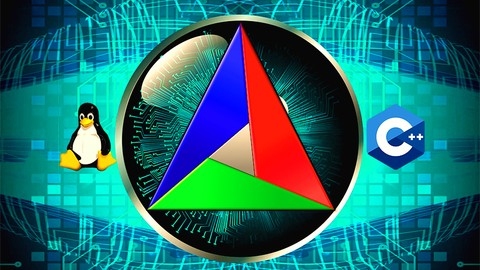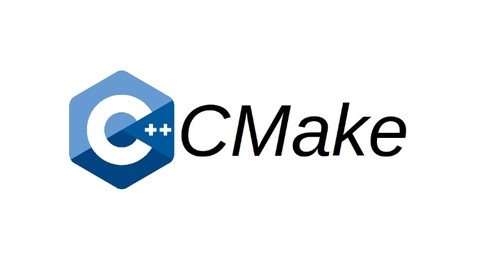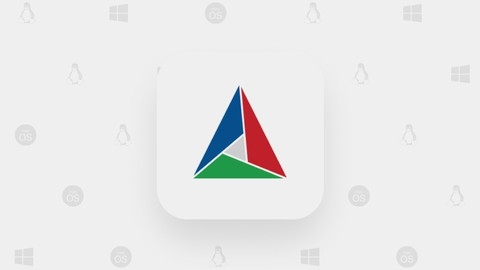CMake is a powerful cross-platform build system that simplifies the process of building and managing complex C++ projects.
It helps you define project structure, dependencies, and build targets, ensuring your code compiles consistently across different platforms, operating systems, and compilers.
By learning CMake, you can streamline your development workflow, improve build efficiency, and gain control over the entire build process.
Finding the right CMake course on Udemy can be a challenge, especially when you’re looking for a comprehensive and engaging learning experience.
You want a course that covers both the fundamentals and advanced topics, with practical examples and real-world projects to solidify your understanding.
Based on our analysis, we recommend Master CMake for Cross-Platform C++ Project Building as the best overall CMake course on Udemy.
This course stands out for its depth and breadth of coverage, starting with the basics and progressing to advanced topics like managing external dependencies and writing your own Find* modules.
The instructor provides clear explanations and real-world examples, making it an excellent choice for both beginners and experienced developers.
While this is our top pick, other excellent options are available.
Keep reading to explore more recommendations for different learning styles and goals, including courses focused on specific aspects of CMake, like testing and dependency management.
Master CMake for Cross-Platform C++ Project Building
This course starts with the basics, explaining the need for build systems and meta-build systems like CMake.
You’ll learn how to install CMake and generate your first executable and library targets.
The course covers essential CMake concepts like targets, their properties, and dependencies.
It dives into managing project files and folders using subdirectories, as well as handling header files the CMake way.
You’ll also learn about variables, lists, strings, and how to manipulate them in CMake.
Control flow commands like if-else and looping are covered, along with functions, macros, scopes, and using listfiles and modules.
The course explains cache variables, how to set and modify them, and explores special variables like CMAKE_VERSION and CMAKE_PROJECT_NAME.
Installing and exporting packages is a crucial topic, and you’ll learn the requirements and process for doing so.
The course also teaches you how to use third-party packages in your projects, with a focus on OpenCV as an example.
Advanced topics like using pkg-config to link libraries like GTK3, find_library() and find_path() commands, and writing your own Find* modules are included.
You’ll learn about running CMakeLists.txt in script mode, handling debug and release modes, and linking external libraries.
The course covers useful tips and FAQs, like commenting in CMake, using CMake variables in C++ files, and dealing with problems when linking external libraries.
Bonus lectures provide additional insights and techniques.
CMake, Tests and Tooling for C/C++ Projects [2024 Edition]
You will start by learning how to install the required software on Windows, Linux, and Mac, and configure Visual Studio Code as your code editor.
The course dives deep into CMake, covering everything from basic project structure to advanced topics like dependency management, external libraries, and documentation generation with Doxygen.
You will learn how to integrate popular testing frameworks like Catch2 and CTest, enabling you to write and run unit tests effectively.
One of the key focuses is on managing external dependencies using different tools like Git submodules, CPM, Conan, and VCPKG.
The course helps you understand the pros and cons of each approach, guiding you to choose the right tool for your project.
You will also learn about compiler warnings, sanitizers, and techniques like IPO/LTO for optimizing your code.
The course covers code formatting and linting with Clang-Format and Clang-Tidy, ensuring your codebase adheres to consistent style guidelines.
Additionally, you will learn how to set up continuous integration with GitHub Actions, enabling automated builds, testing, and code coverage reporting.
The course also covers pre-commit hooks, ensuring code quality checks are performed before committing changes.
For those interested in cross-platform development, the course covers cross-compilation using toolchains and working with pre-compiled libraries.
The final project involves integrating ImGui, a popular graphics library, into a C++ project template.
Introduction to CMake
The course starts by introducing you to CMake, a powerful tool for managing the build process of software projects across different platforms.
You’ll learn how to set up your environment to work with CMake effectively.
Once you have the basics down, you’ll dive into creating your first CMake project.
The course covers the fundamental concepts of CMake, ensuring you grasp the core ideas before moving on.
As you progress, you’ll explore more advanced topics like CTest, which allows you to integrate testing into your build process.
You’ll also learn how to package and export your project for distribution, as well as how to properly install it on different systems.
Throughout the course, you’ll work on a complete code example, applying the concepts you’ve learned to a real-world project.
This practical experience will solidify your understanding and prepare you to use CMake effectively in your own projects.
The course emphasizes a strong foundation in CMake’s basic understanding, ensuring you have a firm grasp of the fundamentals before moving on to more complex topics.
Complete CMake Project Management [2024]
You’ll start with an introduction to CMake, setting up your development environment, and learning the fundamentals of the command line.
The course then dives into the CMake language, teaching you about commands, arguments, variables, conditions, loops, functions, and macros.
You’ll also learn how to structure projects into subdirectories and build targets.
As you progress, you’ll explore more advanced topics like globbing patterns, options and cache management, precompiler definitions, compiler and linker flags, and CMake toolchains.
The course also covers dependency management, showing you how to add dependencies as subdirectories, use FetchContent, and work with Microsoft’s VCPKG.
One unique aspect of this course is its focus on compiling for the web using Emscripten.
You’ll learn how to work with Emscripten and its toolchain, opening up new possibilities for your projects.
Testing is a crucial part of any software development process, and this course covers it in depth.
You’ll learn how to use CTest, as well as popular testing frameworks like Catch2 and GoogleTest.
You’ll also learn how to integrate testing into your build process.
It also covers installation and packaging with CPack, allowing you to distribute your projects easily.
Additionally, you’ll learn about running tools like custom commands, C++ code as part of the build, and Python scripts as part of the build.
Other topics covered include CMake Presets, reading and configuring files, code snippets and bonus materials, CppCheck, Graphviz, Git Submodules, source groups, CCache, easy data copying, embedding, and Doxygen.
Effective Modern CMake: Level Beginner
The course covers the fundamentals of CMake, starting with an introduction to the environment setup.
You’ll learn how to install CMake and Ninja, a build system, on Windows, Ubuntu, and MacOS.
The course also covers working with popular IDEs like CLion, Visual Studio, Qt Creator, and the Terminal.
Once you have the environment set up, the course dives into CMake basics.
You’ll create your first CMake project, learn about CMake Generators, and work with variables, including list variables.
The course guides you through creating executables and libraries, as well as understanding modern CMake project structure.
Conditions and definitions are covered, which are essential for controlling the build process.
You’ll also learn about multiplatform linking to dynamic libraries and the CMake Cache, which stores configuration options.
Testing is an important aspect of any software project, and this course teaches you how to add tests to your build system.
You’ll also learn how to link to external libraries and generate documentation.
The course delves into target properties, providing sources to targets, and build types.
Functions and macros are explored in-depth, including their syntax, tricks, traps, and how to parse function arguments.
Compiler flags are covered, which allow you to control how your code is compiled.
The course also teaches you the basics of installing your software.
One of the highlights of the course is an example case where you’ll review and refactor an existing project.
This hands-on experience will solidify your understanding of CMake and prepare you for real-world scenarios.


![CMake, Tests and Tooling for C/C++ Projects [2024 Edition]](/img/best-cmake-courses-udemy/4628228_CMakeTestsandToolingforCCProjects2024Edition.jpg)

![Complete CMake Project Management [2024]](/img/best-cmake-courses-udemy/4186414_CompleteCMakeProjectManagement2024.jpg)
